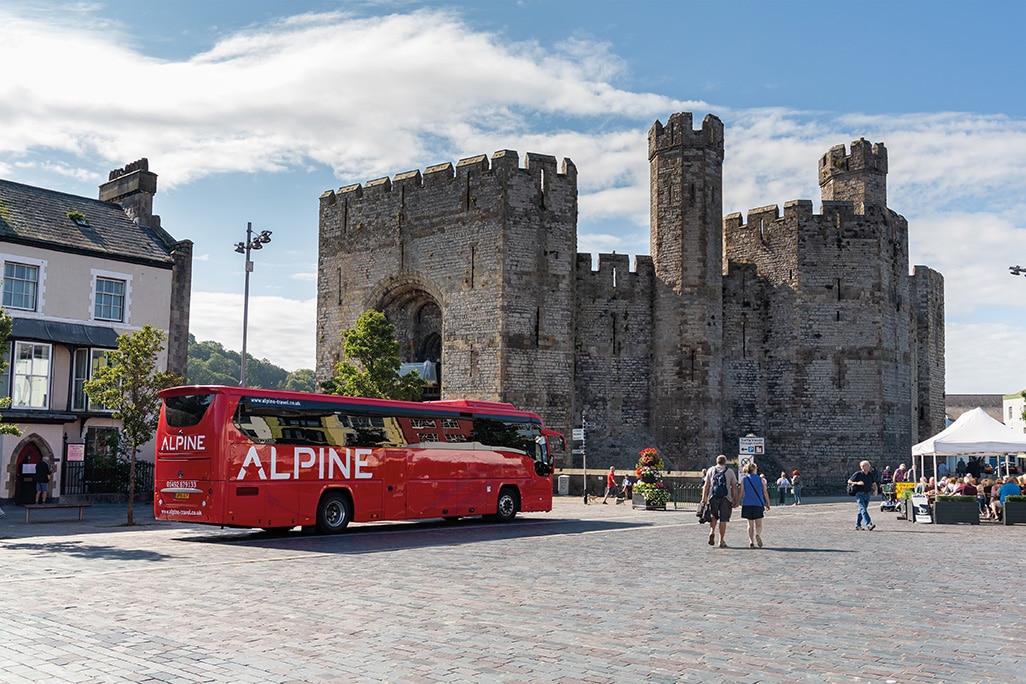National Coach Week has given us a reason to celebrate what the sector can do while leveraging its political capital, says CPT Chief Executive Graham Vidler
What do Beamish Museum, Bury Market and the Royal Yacht Britannia have in common? They benefit from millions of pounds in spending annually by tourists arriving by coach.
The Confederation of Passenger Transport (CPT) has published a list of the top 10 coach destinations.
It shows the eclectic mix of locations served by Britain’s 2,500 coach operators.
With Llandudno, Inverness and the Cotswolds on that list, it is fair to say that our members serve the most picturesque and fascinating corners of the country.
The entrepreneurialism of coach operators never fails to impress. Most of CPT’s coach members are small businesses, with 81% owned by individuals or families.
Uniquely in public transport, they get no taxpayer support. In fact, this government is treating them as cash cows, stinging them not just with higher employers’ national insurance bills but also with an out-of-the-blue liability on inheritance tax.
So I am glad that we have had chance to celebrate the industry’s contribution during National Coach Week (12-18 May), and to push the political agenda for some of the policies up and down the country that would make it easier, and more convenient, for people to travel by coach.
If it is possible to provide car parking spaces, it is baffling that so many authorities make no provision for coaches – Graham Vidler
A glaring issue that CPT cannot stress enough is the importance of safe and convenient drop-off and pick-up points for coaches in towns, cities and destinations.
A coach can take between 25 and 50 cars off the road. If it is possible to provide car parking spaces, it is baffling that so many local authorities make no provision for coaches.
It has been disappointing recently to see this play out in a handful of villages in the Cotswolds as a ‘let’s ban coaches’ suggestion in the media. It would be a costly option for local economies.
KPMG recently estimated that a single coach visiting a town once a day can benefit a local economy to the tune of £1 million.
On the upside, each month we see more locations gain Coach Friendly accreditation from CPT. Ilkley and Exmouth are among the recent additions to this elite club.
Coach operators take 600,000 children to school every day, and the industry supports 81,000 jobs.
So we are keen for the government to devote due consideration to the industry in its upcoming Integrated Transport Strategy – a welcome initiative that I hope will put an end to the tendency to look the other way at any mention of coaches, which carry passengers equivalent to 40% of all rail journeys every year.
In particular, it is time for nationwide consistency allowing coaches to use bus lanes.
And sensible policy would be to exempt coaches from Clean Air Zones in city centres as a form of public transport that reduces overall traffic.
When we asked KPMG to look at the economic contribution of the coach industry, a striking finding was around the geographic spread of jobs.
Our members often provide employment outside urban areas. Cornwall, Powys, the North of England and the Scottish Highlands have particularly high coach employment, reflecting the flexibility of coaches in connecting less populated communities.
That is a reminder that coach policy is progressive policy – and it was encouraging to hear Local Transport Minister Simon Lightwood recognise that at CPT’s conference this year, in a warm and positive endorsement of the coach sector.
By marking National Coach Week with a variety of events in Westminster and across England, Scotland and Wales, the industry has highlighted the many reasons to be positive about coaches, and to take satisfaction in what our members achieve every day.
I hope you can take a moment to reflect, and to be proud of our industry.

























